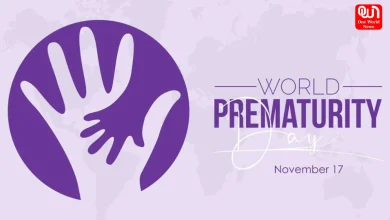Signs that Your Mental Health is Improving

SIGNS YOU SHOULD BE CONCERNED ABOUT YOUR MENTAL HEALTH AND TAKE MEASURES
As the world still continues to battle the covid-19 pandemic, there are many people who are facing mental health problems that may have been caused due to the chaos around or have simply been triggered by it not to mention the social and personal pressure they go through daily in their life.
Now, there’s a lot of talk about staying healthy mentally. However, in this article, you will get to know if your constant effort towards strengthening your mind and emotions is being fruitful or not.
Jaipur based Divination practitioner and energy healer Vibha Sharma says caring for your mental health can lead to:
1. Improved mood
2. No anxiety
3. Clearer & positive thinking
4. Deeper relationships
5. Improved self-esteem and confidence
Sharma also mentions the following signs how it was earlier when you were suffering and how it is now to indicate your mental health conditions.
Earlier: You were not feeling good
Now: You are somewhat feeling good
You now tend to feel good, satisfied, and experience the emotions of happiness, love, joy, and compassion and prefer to avoid being sucked into negative emotions and patterns. Keeping yourself happy and spiritually well helps you to see different perspectives of any situation. You don’t blame yourself when things go wrong and do take responsibility for your actions proudly and make it right.
Earlier: You were experiencing low self-esteem
Now: You’re feeling more confident
You feel down because of your mental state so you need good company to keep motivating you and encouraging you so that you don’t feel insecure about your appearance or your capabilities. Positive thinking and surrounding will help you to recognise all of your wonderful and unique characteristics, feel more confident in who you are, and nurture yourself.
Earlier: You were not happy
Now: You find reasons to be happy
It’s natural to have a bad day every now and then, but, if you routinely find less happiness and enjoyment in activities that you used to love, then something’s quite not right with you or your life. When you have the right people such as supporting parents and trustworthy friends around you for encouragement, it may not seem as hard as you think.
Earlier: You were not getting sufficient sleep
Now: You get peaceful sleep
This is one of the main questions any mental health professional will ask you because sleep and mental health are linked as poor sleep can cause major issues. Also, conversely, mental health issues can cause poor sleep. In some cases, this may mean hypersomnia (sleeping too much) for some people and in other cases, it may be insomnia or trouble sleeping. Watch out for any improvements in your sleep patterns as it is a good measure of progress. Try to be happy and relaxed and leave unwanted thoughts outside. Meditation, self-cleansing, and exercises will help you a lot to get better sleep.
Earlier: You were skipping food
Now: You turn into a foodie

Someone with depression may either lose their appetite or have an increase in appetite depending on how the body reacts. Such a situation triggers emotional and psychological changes in your body and often affects your stomach and digestive system and can make you lose your appetite. So when your mental health is getting better, you notice that you have a healthier appetite and start to enjoy eating healthy food. Right exercises, Yoga, and meditation will bring positive changes to your body.
Earlier: You were struggling to get out of bed
Now: You have more energy
During tough times, you skip your exercise sessions, forget to do your personal grooming routine, and don’t find any interest in anything as you are too lazy to do anything. However, eating nutritious meals, finding exercise that works for you, and caring for your body can do wonders for your mental health. You find that these things are important once you will you’ll get to know that you’re making progress. You will surely find yourself having the energy to complete several tasks and chores you might have put off while feeling weak.
Earlier: You were struggling with anxiety
Now: You don’t feel anxious anymore
You’ll notice your mental health is improved when you notice you don’t feel as anxious anymore, and when you do feel anxiety coming on, you are well equipped to deal with it. Depression and anxiety can make it harder to self-regulate your thoughts and feelings, which is why you must meditate, exercise, and keep yourself engaged in fun activities.
Earlier: It impacts your relationships
Now: You have fostered strong relationships
During periods of depression, you may find people neglecting you because of your behaviour as you may be the one pushing them away. But, when you take control of your mental health, you will feel energized to reignite those relationships and give them the attention, love, and respect they deserve.
Earlier: You get disappointed every time
Now: You have countless expectations from yourself
You feel disappointed and a failure for not meeting your own expectations but when you recognise what you are capable of, you will learn how to set yourself up for success. Making positive mental health changes will help you to accept who you are and to show yourself some grace. Just be patient and relax and wait for the right opportunity. Read the inspirational stories of some great leaders you have heard and you will get to know it wasn’t easy for them either.
Earlier: You are always cranky
Now: You are fun to be around
As your mental health starts to improve, you may notice that you have more patience, understanding, and tolerance towards yourself and others too. You know that other people’s rude or partial behaviour doesn’t affect you at all and you keep on smiling.
Earlier: You live a monotonous life
Now: You have hobbies & like socialising
You have the energy and interest to participate in your favourite activities and hobbies and like to share them with people. You become more social, and excited and spend more time with your friends and family instead of being alone all the time which actually keeps you from moving on.
Try the following tips:
Go out and have fun with your family and friends more often
Using video-chat apps with your kids, friends, or family
Volunteering for a social cause
Go to musical concerts
Earlier: You don’t take care of yourself
Now: You like self-care
You realise the value of taking care of your mental and physical health through daily simple self-care practices such as grooming, exercising regularly, being physically and mentally active, ensuring good sleep, resting after a long hectic day, and even drinking enough water every day. Remember that if you cannot take care of yourself then what the hell are you even doing in your life?
Earlier: Too much negativity
Now: You surround yourself with positivity
During hard times, you perceive your life negatively and start to see yourself and your life through a negative lens, which affects your mental health. However, viewing your life positively can do much better. Some positive words you can begin to say to yourself daily include:
Everyone’s proud of me I am proud of myself too
- My hard work always pays off
- I can do this
- I am loved
- I am strong
- We all make mistakes
Try these healthy habits for your mental health:
- Proper 7-8 hours of sleep every night with less screen time
- Eating healthy and balanced meals
- Exercising for 30 minutes every day
- Hydrating well with water
- Practicing mindfulness and meditation
- Keep good people around
- Avoiding excessive alcohol and caffeine consumption
When to see a doctor
If these healthy habits still don’t improve your mental health, then you must seek help from a health expert. Talk to your care provider about what you’re going through and be prepared to answer questions related to your:
- Current situation
- Medical history
- Physical symptoms
- Current concerns, thoughts, and feelings
- Use of alcohol or drugs
- Relationships







